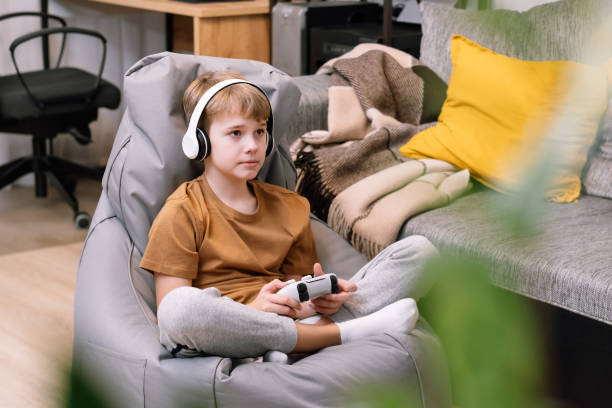
Video games are one of the most loved pastimes in the modern world and not just among kids and adults, but it might not be the most healthy activity to be involved in. Many games that portray conflict and war, such as those mentioned above, may stimulate the brain and cause it to over-stimulate and prepare the child for a fictional threat (competition) beyond the game.
Video games can also trigger the brain’s nervous system, activating a “fight or flight” reaction that causes the heart rates and blood pressure to increase and cause other parts that are part of our brains to shut down. This can be detrimental to their physical and emotional health. But, the negative effect of video gaming on young children is increasing.
To stay focused and boost mood, the brain sends two chemical signals called dopamine (the “feel-good” hormone) and adrenaline (a rush feeling). With all the energy focussed on the computer game, not even the world outside, the child and their brain are working at a greater level.
This means that even when the games are shut off, the brain functions at a higher level than needed, but the child’s attention and energy are shattered. This could lead to uninformed behaviors like throwing objects at each other, screaming, or even anger. Due to the increased levels of brain chemical activity, the child’s behavior improves, and the brain needs time to regulate itself. This is the reason why the effect that video games have on kids isn’t harmful.
If your child is playing games on the internet, their behavior doesn’t have to be the sole thing that can be affected. There are other dangers to consider:
Addiction Threat
In the beginning, people who engage in video games for prolonged periods are more likely to develop an addiction. Many people are more prone to addiction than others; why should we risk it for our children? For kids and adults, addiction to video games leads to them becoming addicted to dopamine. Dopamine is a neurochemical implicated in cognition, memory, emotion, learning, emotions, and other aspects. The rewards and stimulus of video games trigger significant amounts of dopamine released, which makes gamers feel fantastic. On the other hand, long gaming hours can cause dopamine exposure and desensitization of the brain.
Lower Motivation
Insufficiency of energy and lack of motivation to engage in anything other than playing video games are typical symptoms of gamers. This can manifest in children as an inability to attend school, lacking academic performance, or ignoring other obligations.
Attention and interest are lost
Video games are an original kind of entertainment. They fulfill our desire to make progress concrete and our need to be social and relaxed. A game that takes this from the comfort of their homes hurts children’s interest in other unique pleasures. Distraction and loss of interest are the results of games that are played online by children.
Alexithymia
This is the name doctors use for a condition that occurs when people cannot discern their state of mind. According to fMRI research, video games can reduce negative emotions, such as fear, pain, and anxiety. The negative effect of video games is spreading like a flood. This is why many youngsters prefer playing video games rather than dealing with their emotions.
Conclusion
Games on the computer are a typical and fun aspect of adolescenthood. However, a few percent of children struggle to manage their time playing. Encourage your children to break this harmful habit.



